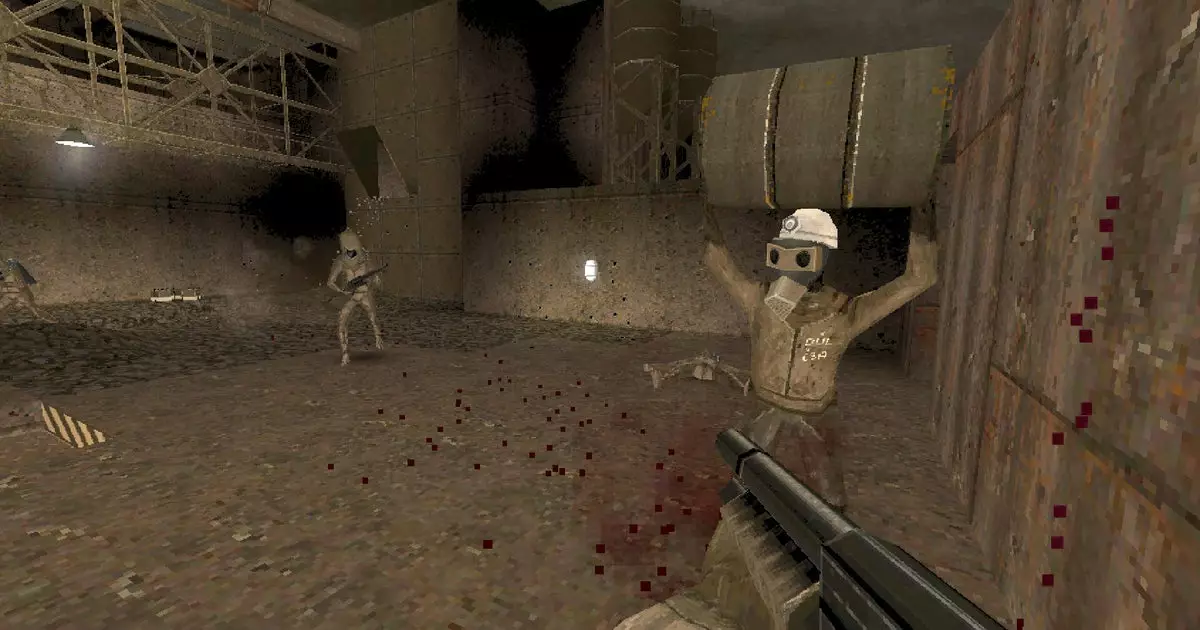In the gaming universe, an unexpected bug can drastically alter a player’s experience, often in bizarre ways. The recent updates concerning the indie shooter game, Hrot, reveal one such quirk: an incessantly barking dog that players have found both amusing and maddening. Over a year and a half after its early access launch, developer Spytihněv discovered that a bug was causing certain portrayed canines to bark continuously, creating a cacophony instead of the intended background ambiance. This incident raises important questions about the intricate relationship between game mechanics, player feedback, and the unpredictability of game development.
This barking anomaly highlights a significant aspect of game creation: developers must expose their work to diverse hardware configurations and player behaviors. While some players brushed off the incessant barking as an unfortunate but tolerable quirk, others outright lamented the broken experience. Spytihněv’s candid acknowledgment of the player community’s feedback underscores the importance of responsiveness in modern game design—both from a technical standpoint and in terms of community engagement. Addressing these complaints, the developer noted that the issue was particularly pronounced in Linux-based systems, which had arguably suffered the most with this stray canine behavior. The existence of such a bug for nearly two years indicates a cautionary tale about thorough testing processes and the challenges faced by small development teams.
Hrot, at its core, is laden with rich thematic content alongside its engaging gameplay mechanics. Merging satire with existential themes, the game leads players through the desolate landscapes of post-communist Prague, where you’ll encounter a surprisingly vibrant array of bizarre scenarios, such as shooting a horse donning a gas mask. This extreme juxtaposition—nuclear anxiety and absurd humor—along with engaging game mechanics, adds layers to the player experience.
The various game elements serve to hold a mirror to societal absurdities and historical curiosities, something that players can appreciate even amid technical hiccups. Developer Spytihněv’s intent to incorporate such a wide range of experiences—from adorable, albeit glitchy dog characters to doppelgangers reminiscent of global political figures—reveals a vision that strives for both entertainment and depth.
Critically, the mixed reception concerning aspects like the barking dog delineates the line between quirky charm and frustrating gameplay. While it serves to enhance the game’s character in some players’ eyes, the overwhelming auditory assault is likely to repel others—a conundrum that many game developers face when balancing humor and playability.
As developers often do, Spytihněv has set his sights beyond Hrot. His new project, Shrot, embraces a different genre: real-time strategy. This venture turns the absurdity dial up to eleven, situating players on a sandy planet filled with horses, tractors, and—curiously—techno music. This shift reflects a developer’s inherent drive to innovate and experiment within their craft. Moreover, it captures how challenges like the barking dog fiasco can inspire new ideas, prompting the developer to explore different artistic avenues and gaming genres.
The transition from a Quake-inspired shooter to a retro-styled RTS suggests a dynamic pulse in Spytihněv’s creative process. Each game mirrors a playful yet serious commentary on contemporary life, making the developer’s journey an enticing one to follow.
While the barking dogs of Hrot may not present the polished experience the developer envisioned, they serve as an emblem of both the charm and chaos of game creation. By engaging openly with player feedback and exploring new creative paths, developers can turn quirky problems into learning experiences and unique opportunities to expand their portfolios. With each new title released, the developer learns, adapts, and grows, ensuring their future games are more than just entertaining—they are also a testament to the vibrant, quirky world of video game development.


Leave a Reply